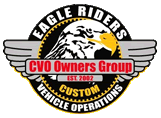I'm the Al Taylor that built heads for Cale Yarbrough, Bill Elliot and Ray Evernham. Never heard of TK enginering...there's a T&L(?) engine development in Stanfield N.C., Loydd Mcleary is the owner and KT engine development in Concord N.C...Kenney Trouhtmen is the owner, both of whom I have worked for. I have also worked for Keith Dorton, David Vasselnuck and have done contract work for half a dozen cup teams. I have been building and racing cars and motorcycles for 40 years. Have set national records, won championships with cars, motorcycles, dirt, asphalt, snowmobiles, motocross, roadrace etc.
Why does he want to build a undersquare motor then want to spin it to 7000 rpm? All the head work on the planet won't help that. 4500 feet/minute is a good number for safe piston speed...at 7000 rpm piston speed is 4958 fpm...a cup motor will run at 4700 fpm at 9000 rpm and all the parts are thrown out after the race. They have a much shorter rod, better alloy pistons, and a plain bearing crank! The roller crank gets real pissed off at 7000 and up. Ok for short bursts, but cylinder fill is so poor at that fpm you're junking your parts for nothing. Let's talk about piston speed and cylinder fill. Long stroke = fast piston speed and poor cylinder fill...short stroke = slow piston speed and better fill. I would custom-build pistons for this deal...Wiseco uses 4032 alloy aluminum in their shelf pistons...with this kinda speed alloy #2618 is a must!!
I have a baseline cnc program.
For this deal I would want to weld the ports and raise the intake. This of course requires a lot of other work!
11 to 1 is about the maximum practical compression on pump gas, unless you can run higher octane.
I would suggest titanium valves depending on the amount of street miles the motor will see. I use Del West when people have the money. Ferrea and Kibblewhite for stainless or cheaper titanium. The titanium would require beryllium seats. I use C.H.E. guides and use an intramike and a sunnen hone to size them. Mostly comp and psi valve springs with P.E.P. titanium upper retainers. If not titanium valves then I suggest 7 mm, depending on lifters...with stock lifters and 5/16 stem stainless valves I do not go over 160 to 170 psi on the seat, much more and you overcome the hydraulic lifter pressure. Depending on the spring 260 to 320 at full lift. With solids we would bump that up. 7 mm and titanium would be different. For street motors I have had good luck using a lower pressure on the exhaust side...it is a lighter valve and needs less pressure to control it. As a result we see fewer problems with noisy lifters
 Author
Topic: further discourse from my guru (Read 7355 times)
Author
Topic: further discourse from my guru (Read 7355 times)

